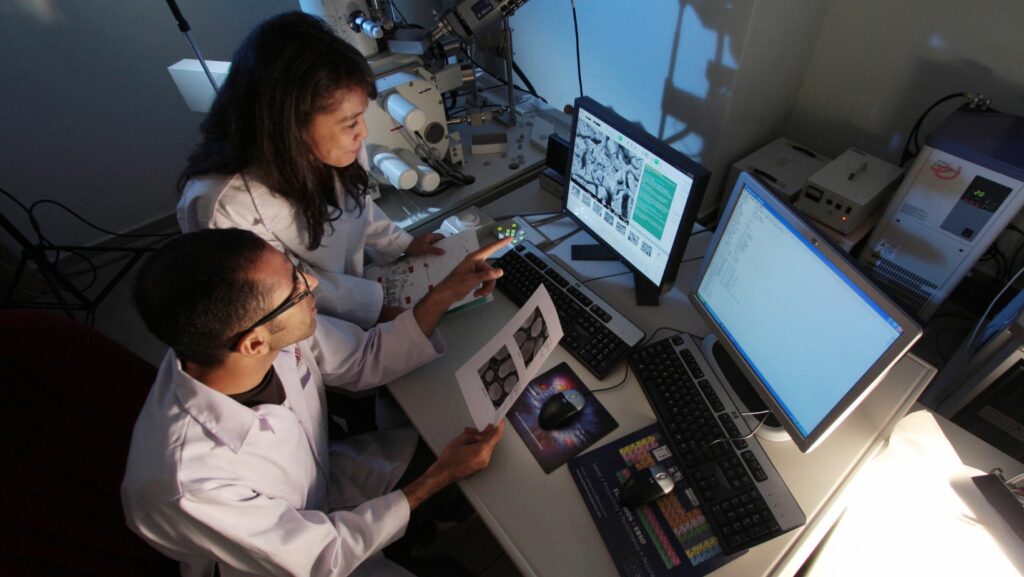Key Takeaways
- Transformational Era: The Industrial Revolution sparked significant technological advancements and societal changes, influencing the birth of science fiction as a genre.
- Core Themes: Key themes include the mechanization of life, dystopian futures stemming from industrialization, and the conflict between humanity and machines.
- Influential Authors: Pioneering authors like H.G. Wells, Jules Verne, and Mary Shelley used the industrial backdrop to explore the implications of technology and social dynamics.
- Dystopian Reflections: Many narratives present grim visions of the future, highlighting issues like class struggles and the potential loss of individuality due to mechanization.
- Genre Evolution: The Industrial Revolution influenced the development of distinct subgenres in science fiction, particularly steampunk and dystopian fiction, continuing to resonate in modern narratives.
- Ethical Implications: These stories prompt readers to reflect on the ethics of technological innovation and the complex relationship between humanity and progress.
The Industrial Revolution marked a turning point in human history, unleashing unprecedented technological advancements and societal changes. This era not only transformed industries but also sparked the imagination of writers and thinkers, giving rise to a unique subgenre of literature: science fiction. By blending the marvels of machinery with speculative ideas, authors crafted narratives that explored the potential and pitfalls of innovation.
Science fiction inspired by the Industrial Revolution delves into the complexities of progress, often highlighting the tension between humanity and technology. From steam-powered automatons to dystopian societies shaped by industrialization, these stories reflect both the awe and anxiety of a rapidly changing world. As readers embark on these imaginative journeys, they’re invited to ponder the future of civilization in the face of relentless advancement.
Science Fiction Inspired By Industrial Revolution
 Science fiction inspired by the Industrial Revolution often reflects the transformative changes within society and technology. This subgenre frequently explores themes such as industrialization, urbanization, and the consequences of unchecked technological advancement.
Science fiction inspired by the Industrial Revolution often reflects the transformative changes within society and technology. This subgenre frequently explores themes such as industrialization, urbanization, and the consequences of unchecked technological advancement.
Authors like H.G. Wells and Jules Verne utilized the Industrial Revolution as a backdrop for their narratives, creating worlds filled with steam-powered inventions and complex machinery. These authors examined the implications of innovation, portraying characters who grappled with the benefits and drawbacks of progress.
Key themes in this literary movement include:
- The Mechanization of Life: Stories often depict societies where machines perform human tasks, highlighting the loss of individuality and labor issues.
- Dystopian Futures: Many narratives envision grim outcomes from industrialization, where advancements lead to societal decay and oppression.
- Human vs. Machine: Conflicts arise between humanity and an increasingly mechanized environment, exploring questions of identity and purpose.
- Exploration and Discovery: The spirit of the Industrial Revolution fosters narratives about exploration, with characters traveling to uncharted territories or experiencing new technologies.
The blending of these themes illustrates a complex relationship between human beings and their creations, inviting readers to reflect on the implications of the rapidly changing world around them.
Key Themes and Motifs
 The science fiction inspired by the Industrial Revolution prominently features several themes and motifs that reflect the technological and social transformations of that era. These narratives reveal critical insights into the relationship between humanity and technological progress. Technological advancements serve as a core theme in this subgenre, highlighting the wonders and perils of innovation. Steam-powered machines, automation, and inventions shape the worlds created by authors. Characters often grapple with the consequences of these developments, illustrating both the excitement and dangers of progress. Works like Jules Verne’s “Twenty Thousand Leagues Under the Sea” portray groundbreaking technologies that redefine exploration. Meanwhile, H.G. Wells’s “The Time Machine” examines the long-term effects of class division stemming from technological disparities. Through these narratives, the interaction between humans and machines raises questions about identity, purpose, and agency within evolved societies.
The science fiction inspired by the Industrial Revolution prominently features several themes and motifs that reflect the technological and social transformations of that era. These narratives reveal critical insights into the relationship between humanity and technological progress. Technological advancements serve as a core theme in this subgenre, highlighting the wonders and perils of innovation. Steam-powered machines, automation, and inventions shape the worlds created by authors. Characters often grapple with the consequences of these developments, illustrating both the excitement and dangers of progress. Works like Jules Verne’s “Twenty Thousand Leagues Under the Sea” portray groundbreaking technologies that redefine exploration. Meanwhile, H.G. Wells’s “The Time Machine” examines the long-term effects of class division stemming from technological disparities. Through these narratives, the interaction between humans and machines raises questions about identity, purpose, and agency within evolved societies.
Social Change and Class Struggles
Social change and class struggles emerge prominently in industrial-themed science fiction. Authors depict a rapidly transforming society marked by stark class divisions and socio-economic challenges. They explore the implications of industrialization on labor and social hierarchies, often portraying the working class’s fight against oppression. In books like “Metropolis” by Thea von Harbou, stark contrasts between the elite and workers illustrate the consequences of unchecked industrial growth. The industrial backdrop accentuates these conflicts, prompting readers to consider moral implications related to power and exploitation. Overall, these themes reflect not just historical changes but also a broader understanding of societal dynamics.
Influential Works and Authors
Several influential works and authors shaped the science fiction genre inspired by the Industrial Revolution. These narratives not only illustrate the era’s technological advancements but also critique societal changes and the interplay between humanity and machinery.
Classic Literature
Classic literature from the Industrial Revolution period features significant contributions that laid the groundwork for modern science fiction.
- Mary Shelley: “Frankenstein” (1818) explores the consequences of unbridled scientific ambition through the story of Victor Frankenstein and his monstrous creation, questioning the ethical implications of innovation.
- H.G. Wells: Known for works like “The Time Machine” (1895) and “The Invisible Man” (1897), Wells examines the tension between society and technological progress, portraying themes of evolution and social class disparities.
- Jules Verne: In “Twenty Thousand Leagues Under the Sea” (1870) and “Journey to the Center of the Earth” (1864), Verne presents adventurous narratives driven by mechanical inventions, highlighting both the marvels and dangers of technological exploration.
Modern Interpretations
Modern interpretations of science fiction continue to draw from the Industrial Revolution’s themes, reflecting current societal dynamics.
- Cory Doctorow: In “Down and Out in the Magic Kingdom” (2003), Doctorow imagines a future where technology influences social structures, examining concepts of wealth disparity and corporate power.
- China Miéville: Works like “Perdido Street Station” (2000) immerse readers in fantastical settings rife with industrial aesthetics, contributing to discussions on identity and labor in fantastical urban environments.
- Philip K. Dick: In “Do Androids Dream of Electric Sheep?” (1968), Dick questions the nature of humanity and morality amid advancing technologies, showcasing the complexities present in a post-industrial landscape.
These classic and modern works effectively reflect societal tensions amid technological growth, inviting readers to ponder the implications of innovation on human life and social structures.
Impact of the Industrial Revolution on Science Fiction
The Industrial Revolution significantly shaped the landscape of science fiction. This era’s technological advancements fostered stories that merged speculative ideas with the rapid changes in society.
Shaping Narratives
Narratives in science fiction reflect the anxieties and aspirations stemming from industrialization. Authors often depict machinery as both a source of progress and a threat to humanity. For instance, literary figures such as H.G. Wells and Mary Shelley utilized these elements to explore themes like creation and responsibility. Stories like “Frankenstein” illustrate the potential consequences of unrestrained scientific endeavors. Conflicts arise in narratives where characters grapple with the implications of mechanization and its impact on personal identity, creating a rich narrative vein that examines humanity’s relationship with machines. These narratives unveil the dual nature of innovation, inviting readers to question the ethics of technology and its effects on society.
Influencing Genre Development
The Industrial Revolution laid the groundwork for distinct subgenres within science fiction. Steampunk emerged as a prominent category, characterized by its focus on steam-powered technology and Victorian aesthetics. This subgenre blends historical settings with futuristic inventions, showcasing the marvels and challenges of industrial progress. Notable works in this genre, such as Philip Pullman’s “His Dark Materials,” illustrate how these themes intertwine with broader explorations of power and society. Furthermore, the dystopian genre gained popularity, as authors depicted the dark sides of industrialization, such as environmental degradation and social inequality. The influence of this era continues to resonate in contemporary science fiction, guiding narratives that scrutinize modern technological advancements and their societal implications.
The legacy of the Industrial Revolution continues to shape the landscape of science fiction. This genre not only reflects the complexities of technological progress but also invites readers to engage with the moral and ethical dilemmas that arise from innovation. Through the lens of classic and modern authors, the interplay between humanity and machinery remains a compelling narrative thread.
As society evolves and technology advances, these stories resonate more than ever. They challenge readers to consider the consequences of unchecked progress and the balance between human agency and mechanization. The themes rooted in this literary movement serve as a reminder of the ongoing dialogue between our aspirations and the realities of a rapidly changing world.



